 Chile : Safety by City
Chile : Safety by City
The length of Chile has earned this country a reputation of the longest country in the world since its coastline extends over 4,300 km.
It is located on the west coast of South America, and takes over its southern half, between the Andes and the Pacific Ocean.
As for safety in Chile, even though this gorgeous country bordering with Peru, Bolivia and Argentina, is relatively safe, there is definitely some crime risk to be considered.
Among the most common dangers in Chile are luggage theft, mugging, drink spiking, and other similar crimes.
Warnings & Dangers in Chile

OVERALL RISK: LOW
Chile is not that different from any other country for tourists, in the sense that you should be aware that tourist hotspots, restaurants, shops and public transportation are places where most thefts and pickpocketing occur, which are the most common forms of crime on the streets of Chile.

TRANSPORT & TAXIS RISK: LOW
All in all, public transportation and taxi cabs in Chile are safe. Be sure to book taxi rides from a hotel and make arrangements with taxi drivers in advance, preferably through recommendation, because cases of tourists being assaulted and robbed by taxi drivers have been reported. Keep in mind that taxis with company logos are the safest options.

PICKPOCKETS RISK: LOW
As for pickpocketing, it is a recurring concern on the streets of Chile, but what is even more common is bag snatching, so be careful and hold your bags tightly by your side. Even better, keep your money and your valuables elsewhere, like in hidden pockets of your clothes and never ever keep all of your money in the same place.

NATURAL DISASTERS RISK: MEDIUM
If you want to enjoy a safe trip, you should be familiar with natural disaster threats lurking in Chile. Since it's a country filled with many natural wonders, there are as many natural hazards that may represent a threat to its inhabitants, such as earthquakes and active volcanoes.Chile is an active earthquake zone and in recent years its quakes have been of higher magnitude than before. It is also home of a couple of active volcanoes, some of which may erupt at any time.

MUGGING RISK: MEDIUM
Mugging, as already mentioned, does happen in Chile, and mostly in urban areas. People that are targeted are mostly people walking alone and tourists. In case of mugging, immediately hand over all your possessions without resisting.

TERRORISM RISK: LOW
Risks of terrorist attacks in Chile are extremely low. Instead of terrorist attacks, there is some risk of anarchist groups setting off small explosives on the streets, in banks or public transportations. Just follow any instructions you may receive from the authorities or tour guides and operators.

SCAMS RISK: LOW
Just like anywhere else, taxi drivers might try to trick you into paying more, giving you wrongful information about the price of the ride. Also, be weary of suspicious activities of thieves trying to rob you, such as tapping your shoulder, bumping into you and similar actions.

WOMEN TRAVELERS RISK: LOW
Women have traveled alone to Chile without any consequences or problems. Even though women travelers should take precaution measures in crowded places, public transportation or isolated spots, their biggest worry will probably be getting unwanted attention from men on the streets. However, if you are a woman traveling alone, avoid dark and empty streets and locations.
So... How Safe Is Chile Really?
Chile is a huge country, filled with gorgeous nature, adventure spots, and warm and welcoming people, and that’s just a fraction of what awaits you there.
However, like in any other country, you should be aware of everything surrounding you at all times, especially if you’re visiting Santiago, Valparaiso, Providencia, Vitacura, Antofagasta, and Iquique.
Here are the risks you should be aware of before planning your trip to Chile.
The crime rate in Chile is pretty low, making this country the safest one in the entire region.
The most common crime that may befall you are muggings, bag snatching, and pickpocketing.
And even though there have been reports of daytime muggings, violent crimes are very rare in Chile.
Avoid places and providences notorious for being crime hot spots, such as Vitacura, Providencia and Las Condes and keep your possessions close to you.
Transportation Safety
As for transportation, there are several precaution points you should be aware of.
When taking the bus or a train, never leave your valuable possessions in storage compartments because they may get stolen.
Always book taxis in advance instead of hailing them on the street, since the taxi drivers may scam you into paying way more than you should, or even assault you.
There have also been reports of vehicle theft, so always keep your windows up, your doors locked and your possessions by your side.
Natural Dangers
Natural dangers are probably more likely than those that have to do with crime since Chile is rich in natural beauties and because of that, exposed to many possible disasters.
Earthquakes are becoming more and more common, and of higher magnitude in recent years.
There are several active volcanoes that could erupt at any moment, and apart from that, the country is filled with geysers, some of the most incredible but also extremely dangerous natural wonders.
Falling into one of the geyser craters can have devastating and fatal results.
Political Situation
The political situation in Chile may carry some dangers.
Nationwide protests along with Chile usually occur on military coup anniversary which is September 11th and on Worker’s Day which is on May 1st.
However, the biggest protests mainly happen in Santiago, and you should avoid them as police tend to use tear gas and water cannons against protesters.
Landmines
Chile is a country bordering with Peru, Bolivia, and Argentina.
The landmines are mostly found on and near these borders, so they can affect mainly cattle and people who are crossing these borders in unauthorized areas.
Most of the landmines are clearly marked, but some signs are old and damaged so they may not be easily spotted.
If you plan on visiting these areas, by all means, always check with the authorities first.
How Does Chile Compare?
| Country | Safety Index |
|---|---|
| Chile | 79 |
| Morocco | 54 |
| Finland | 86 |
| Spain | 83 |
| United Kingdom | 77 |
| New Zealand | 90 |
| Hungary | 83 |
| Uruguay | 77 |
| Singapore | 90 |
Useful Information

Visas
When it comes to tourist visits, most countries do not need visas to enter Chile. The only thing you should check, is that your passport is valid throughout the duration of your stay in Chile, and no validity beyond the time of your stay is necessary. However, if you are not sure about your visa status, visit www.doyouneedvisa.com which will let you know whether or not you need visa based on your nationality and the country you want to visit.

Currency
Currency in Chile is the Chilean Peso (CLP) and you can withdraw your money from any available ATM on the street. Credit cards are widely accepted, mostly in larger cities, but never leave your card in plain sight.

Weather
Even though the temperature can drop during the middle of the year, it doesn't get extremely cold. The warmest period is during the beginning of the year, when temperatures in January reach as high as 86 F. It is coldest during July and August, with average temperatures of about 36 F.

Airports
There are three busiest airports in Chile: Comodoro Arturo Merino Benitez (SCL) in Santiago, (the busiest airport in the country) Diego Aracena International Airport (IQQ) in Iquique and Cerro Morreno International Airport (ANF) in Antofagasta.

Travel Insurance
Just like anywhere else, we advise getting travel insurance when traveling to Chile because it covers not only the costs of medical problems, but also theft and loss of valuables.
Chile Weather Averages (Temperatures)
Average High/Low Temperature
| Temperature / Month | Jan | Feb | Mar | Apr | May | Jun | Jul | Aug | Sep | Oct | Nov | Dec |
|---|---|---|---|---|---|---|---|---|---|---|---|---|
| High °C | 30 | 30 | 28 | 24 | 20 | 16 | 15 | 18 | 19 | 23 | 27 | 29 |
| Low °C | 12 | 11 | 9 | 6 | 4 | 2 | 2 | 3 | 4 | 7 | 9 | 10 |
| High °F | 86 | 86 | 82 | 75 | 68 | 61 | 59 | 64 | 66 | 73 | 81 | 84 |
| Low °F | 54 | 52 | 48 | 43 | 39 | 36 | 36 | 37 | 39 | 45 | 48 | 50 |
Chile - Safety by City
| City | Safety Index |
|---|---|
| Iquique | 42 |
| La Serena | 76 |
| Punta Arenas | 77 |
| Santiago de Chile | 71 |
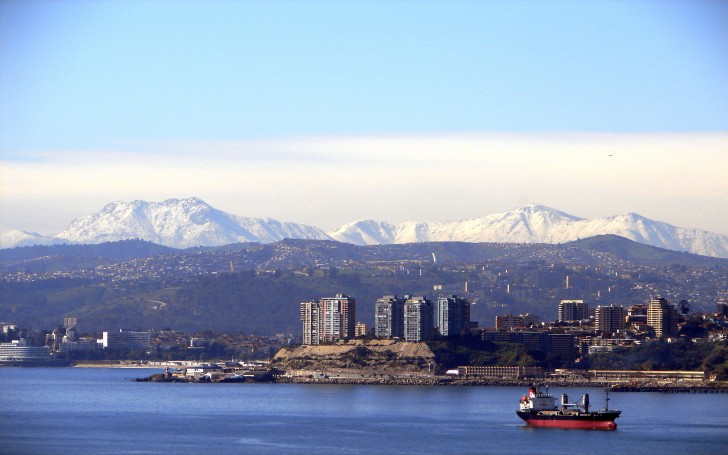

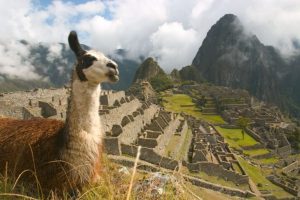

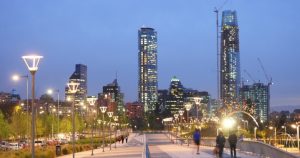
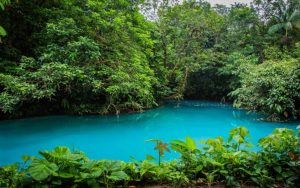
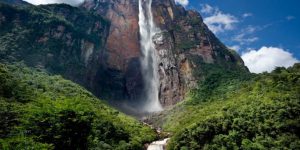





Seriously?
Time to update your review to reflect current events
Chile is probably the safest place in all South America
I have been to all the south of Chile
I’ve been also at Santiago.
Santiago is not safe for tourists but for travelers. They love stealing phones but in my case I always been really cautious.
In the south of Chile I always feel safe. In small towns they protect travelers. I’ve been camping and overall great experiences. The only advice I would give is to never tell your location or where you’re going because Chileans are very curious and often mean well but come across as creepy sometimes! I plan to go camping in Chile this year!! Again
Not recommend now
With all the protests and such going on right now, I would not recommend going here. I went a few years ago and it wasn’t the safest place but I am a well-knowledged traveler. I would not recommend going here if you have never been here or if you have no travel experience.
I enjoyed Chile
Having been to Chile 3 times now, I think it is absolutely beautiful. I did two group trips and one solo trip and all three times, I loved it. I feel like today may be a bit different seeing as the last time I traveled there was back in 2013 but I still recommend going. It is a wonderful place.
which city is pictured above in the description?
Valparaiso and Viña del Mar
Is this a joke?
I left Chile because I was robbed, molested many times in the street, assaulted with a gun, scammed by a University… Scammed by people so many times… Who wrote this? The government is insanely corrupted, social justice doesn’t exist at all. And the Chilean average see the foreign visitors a way to get easy money.
Is such a wonderful and beautiful country… But omg you never know when someone will take your car, will stole you bag, will touch you without consent… Many restaurants and places ask hidden cost to tourist!
No es verdad yo he estado en chile es precioso y la gente es muy gentil y onesta
40 years living in Chile
I have lived in Chile since 1972 with houses in both Santiago and tourist resorts. I have not experienced violence of any kind or had anything stolen. I am British and this is not my experience on visiting the UK.
11 years.
What are you talking about? I’ve been living in Chile for nearly 11 years and I’ve never experienced what you are talking.
I lived in Providencia during my exchange and I didn’t have any problem.
Chile is a wonderful country. Of course it has flaws, but deffinitely it’s the best one in South America.
I hope I will go back there as soon as this pandemic ends.
This is true and common. My brother in law had been robbed twice in three months. And yes, there is a chance that you will be molested or your purse will be snatched.
I am still going to Chile.
I am going to Chile doing Spring Break trip.
A safe place
If the safety tips are as accurate as the average temperature tables shown, then the tips are worth nothing at all! Chile is 4500 km long – a distance equivalent from Norway to Morocco – so there is no such thing as an “average” temperature.
I am British and have been living in Chile for 33 years. With regard to safety, you need only to look out for pickpockets, which tend to concentrate on foreigners in big cities. Chile is by far the safest country in the Americas after Canada. I have never been a victim of any crime, and the police is trustworthy in general. In the last couple of years the situation has changed for the worse due to political violence, but as long as you are sensible and refrain from participating in political demonstrations, you wont have a problem.
100% – the temperatures sounds like Hawaii’s which is not true unless you are in Arica which is located in the north. Temperature and weather varies depending on which city. From 100 F in the North to below 0 in the South and everything in between.
The place is not safe today. Crime is high. Drug cartels are in. They use fireworks, yes fireworks, to announce when the drug is in. That tells you how much the authorities are doing about it. Immigration became a problem as they “welcome” everybody and have no immigration laws. Immigrants have placed tents in the street for shelter.
Safest country in SA
Lived in Chile for over a year and felt safe most of the time. If you do not go into poblaciones as a tourist and if you watch your stuff it is quite safe, however muggings do happen. In the “Sector Oriente” you can walk at night without any danger. Beware of scams especially online, they are quite common. Outside Santiago I felt even safer.
Safe And Fun
I had a great time in Chile! the whole time I felt very safe. The people were friendly and helpful. Most of my stay was in Santiago but I also went to La Serena. My highlights were San Cristóbal Hill, Sky Costanera and La Serena beach. All the places I mentioned I felt safe and are family friendly. I’ll certainly be visiting again!
No way
I have been threatened with a gun, assaulted and know family members who have been frequenting robbed. Drink spiking is a massive problem in chile and has not been acknowledged by most people
Thieves have a radar for cowards like you, this is an amazing country, very safe, and people get scammed and robbed in every place of the world not only in Chile.
“cowards like you”. So I guess you would resist and get killed? You are stupid, my friend.
So beautiful
Chile is one amazing because of its beauty and the huge coastline it has. This country is one of the best ones from what I’ve visited so far and I visited a few of them. I wouldn’t say it’s a dangerous country. I haven’t experienced anything out of the ordinary while here so I don’t consider it a dangerous place. I saw pickpockets a few times which I expected to see, especially in the bigger cities or in crowded areas. It’s only logical they would show up there.
I have heard of someone getting mugged in the nighttime so there’s that. I think that with a bit of care and by paying attention to surroundings and not going into bad areas (which you should familiarize yourself with), you’ll be fine. I, for one, wouldn’t travel alone to any country. Everything is better and safer for 2 or more people but that’s just me.
I managed to visit a few interesting places and I loved every minute of it. Easter Island was on my bucket list and I’m glad I got a chance to experience it. It’s a remote place and it’s not the easiest place to get to but it was worth it for me. You should know that you get here by flight and it takes around 5 hours so plan on staying a while.
Santiago is a particularly beautiful city and it will probably be the first place you see in Chile. This city has so many things to offer so ask around and see what you like. It has something for everyone from museums and parks to nightlife and entertainment.
Chile also has many natural monuments, one of them being the Los Pinguinos Natural Monument which is worth visiting. You’ll get a chance to see penguins, sea lions and seals but you’ll have to use guided boat tours.
.
The page is correct, Uruguay is a little safer though, I would say its not that dangerous.